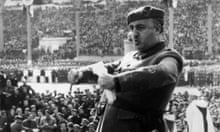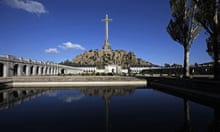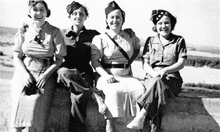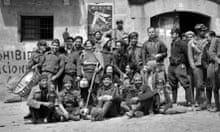A judge in Argentina will examine cases of sexual assault, murder, forced abortion and the theft of children in Franco’s Spain after widening her inquiry into the atrocities committed during the civil war and dictatorship to include crimes committed specifically against women.
Judge María Servini de Cubría has been looking into human rights abuses during the Spanish dictatorship since 2010, when a group of survivors petitioned her to launch an investigation under the principle of universal jurisdiction.
The victims are using the principle – which allows human rights crimes committed in one country to be investigated and tried in another – because the amnesty law passed in 1977 as Spain returned to democracy granted impunity to those involved in crimes during the civil war and dictatorship.
Servini will begin the new investigations following a two-year legal petition by the human rights NGO Women’s Link Worldwide, which is acting on behalf of six female victims of human rights abuses during the 1939-1975 dictatorship
“The main lawsuit in Argentina is already looking into some of the things that women went through, but this is the first lawsuit over the specific violence that women suffered under the Franco regime,” said Aintzane Márquez, a lawyer at Women’s Link.
As many as 300,000 babies are thought to have been stolen from their mothers in an illegal practice that began shortly after Franco won the civil war and continued well after his death in 1975.
The new complaint also details cases of rape, sexual violence, torture, murder and women having their heads shaved and being force-fed castor oil so that they would lose control of their bowels and suffer public humiliation.
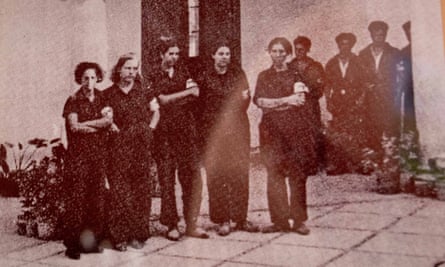
“We’ve been told the stories and we’ve taken action so that people know that women suffered a special kind of violence under Franco simply for being women,” said Márquez.
“If people don’t know about the violence that women suffered, they don’t know the whole story.”
Márquez said that while the legal proceeding might not end in a conviction, they would serve to ensure that the victims’ voices were heard in court at long last.
The activist, politician and writer Lidia Falcón, now 82, was arrested seven times under Franco.
After an Eta bomb exploded in Madrid on 13 September 1974, she was taken to the directorate general of security in the capital and held for nine days. Her hands were bound and she was hung from a hook on the ceiling and beaten.
“I’d had a bit of a liver infection and I was naive enough to tell the doctor there about it,” said Falcón.
“That’s why the first blows were to my liver. Then they started hitting my abdomen and my belly, shouting: ‘You’re not going to give birth any more, you whore!’ That happened day after day and I blacked out a few times.”
She was eventually taken to hospital to undergo operations for the damage she had suffered to her abdomen and tendons, and then spent nine months in prison.
Falcón doubts that justice will be done, but after keeping it “all anaesthetised; all archived” for 40 years, she and others have decided to speak out.
“Some of my colleagues, who are quite old, have been very relieved to be able to tell their stories at last and to be able talk about their murdered husbands and sons or their own imprisonment,” she said.
“But to tell you the truth, I’m not sure it’s been like that for me. I’m suffering it all again. I’m reliving it. But I know I have to do it and I’m not complaining.”
What happened under Franco, she added, was “a disgrace to the civilised world”.
“It’s no secret that people were tortured and murdered here, but at least it will be in the annals now.”
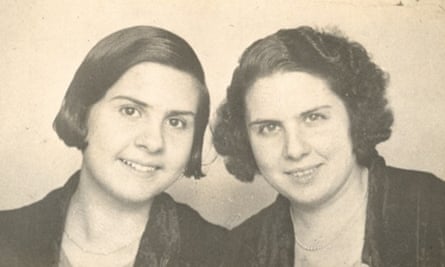
Carlos del Tronco, who is now in his 80s, is seeking justice for two women he never knew.
His aunts, Daria and Mercedes Buxadé, then aged 22 and 18, travelled to Mallorca to work as nurses in August 1936, a month after the civil war broke out.
The sisters’ Red Cross armbands afforded them no protection from the island’s Falangists. They were taken to the town of Manacor and paraded in the main square, where they were spat on and insulted.
After being examined by a doctor to determine whether they were virgins, the Buxadés were raped repeatedly before being shot. Their bodies were burned and the remains covered in quicklime and excrement.
For Del Tronco, the Argentinian case is not about revenge but justice, truth and memory.
“For me, everything that’s happened is part of my family’s history,” he said.
“The pact of forgetting and the amnesty law were a political issue that came from people with no integrity who didn’t accept the ideas of the republic. It’s like someone telling the British to forget about Dunkirk and all those who sacrificed their lives in the first and second world wars, and all their history, for pure political convenience. I don’t think that would go down very well in the UK.”
For Del Tronco, the search for justice is also an act of love and a family duty.
“I don’t know whether they were brave, but I do know people say that a lot of these women died with more composure than a lot of the men,” he said.
“The family always spoke about Daria and Mercedes with so much love. That love and affection for them has stayed with me and the more I’ve learned, the more it’s grown and the more I’ve wanted to find out.”



